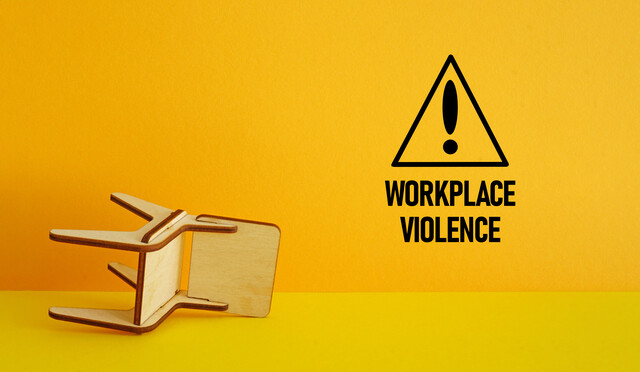For many personal assistants, managing their employer's household is part of the job description. Despite any personal life experience you may have with home management, looking after someone else's "great house" requires a different set of skills.
Definitions
The terms "estate manager" and "household manager" are often used interchangeably, but there is a difference. An estate manager typically manages large estates with multiple homes or families on the premises, while a household manager is responsible for a single household. Your employer may hire someone for this purpose, or may rely upon his or her personal assistant to oversee household staff.
Areas of Home Management
A wealthy employer likely has a large home, and big houses require staff for proper upkeep and daily maintenance, both interior and exterior.
The owner of a mansion home may employ a few basic staff, or a large crew of people. Some celebrities or wealthy individuals have a spouse or life partner who oversees any staff. For example, Shannon Tweed Simmons, wife of musician and business mogul Gene Simmons, handles all aspects of home care and management. In such cases, your personal assistant role will include little or no household responsibilities, although you may still interact and make plans or arrangements with your boss's partner or spouse regarding special events. (In fact, it's a good idea for a personal assistant to develop a pleasant working relationship with their employer's significant other/family, but don't be pushy or overstep your boundaries in doing so.)
Types and number of staff vary greatly, depending on the type of estate or property your employer owns, the location, and your employer's preference for traditional/highly formal staff, or a less formal situation. Household staff may include:
-
A house manager, or head of household staff - The personal assistant may perform this role in smaller households; if there is a house manager, he or she will likely be the household point-of-contact. Couples are sometimes hired for this duty in the case of a very large household.
-
A butler � In smaller households, particularly in Europe, the butler serves as a personal valet to the "master of the household," particularly in matters of wardrobe. The butler typically oversees the wine cellar, pantry, and formal dining room.
-
A housekeeper � If there is more than one housekeeper, homeowners will usually employ a head housekeeper to manage the housekeeping staff.
-
A cook or chef � If your employer's household employs a chef, he or she may supervise additional cooks.
-
A chauffeur � Although many celebrities or wealthy employers prefer to drive themselves to events, some still employ full- or part-time chauffeurs for special events, airport drop-off, or family member use. Others have favorite car services or independent drivers they call upon when a driver is needed.
-
A governess � This old-fashioned term refers to a woman who teaches and trains school-age children. In times past, a governess often lived with the family. Today, a home-school teacher would fill such a role, although it's unlikely the teacher would live in the home. They may, however, travel with the family on long trips in order to continue the children's lessons uninterrupted.
-
The children may have a private tutor for certain subjects.
-
A nanny � Someone typically employed for the care of babies and toddlers, although some employers retain a nanny until the last of the children leaves home.
-
Groundskeeper(s) � Vast, lush grounds require a great deal of care, so most people who own large homes employ at least one groundskeeper. Often this is a full-time position, although if the grounds aren't extensive, the position might be part-time.
-
Maintenance personnel � Some homeowners have a favorite "handy person" they like to call upon when things need repair. It behooves a personal assistant to know who that is, and how to contact them.
-
Pool maintenance � This is usually an individual or representative of a pool maintenance company who comes in on a regular basis and maintains pools, hot tubs, and/or ponds.
Managing Household Staff
If your position as a personal assistant includes household management, there are a few useful tips that can help make your job easier.
One of the main things to remember when managing household staff is the difference between your position and theirs. Having your employer occasionally ask you to help out by doing a load of laundry is far different from you routinely helping household staff complete their assignments.
It can be tempting � and easy � to fall in to a trap of lending assistance when members of the household staff fall behind, particularly when preparing for a special event. While some tasks outside of the normal scope of your PA duties might fall to you as a result of special occasions or unique circumstances, volunteering yourself for additional duties outside your job description is something to be avoided.
What begins as an innocent, team-centered gesture to pitch in and lend a hand can quickly become an expectation and obligation. Not only do additional tasks outside your scope of responsibility take time and attention away from your own tasks, they minimize your position and negate any authority you may have. Despite the personal assistant position being the "bottom of the totem pole," a personal assistant must have a professional, respectful, and appropriate relationship with other members of his or her employer's staff.
There is such a thing as being too helpful or eager to please; such behavior sets a dangerous precedent of servitude, lack of confidence in your position, and unclear boundaries between you and the household staff. It is always advisable to keep a professional distance.
Your level of authority can differ, depending upon your employer's preferences and needs. While some personal assistants might be responsible for hiring and firing staff, it is more common for that chore to belong to the homeowners or supervising household staff.
Some Duties Associated With Household Management
When considering adding "household manager" to the already-enormous list of personal assistant duties, your first thought might be, "I can't be a household manager on top of everything else!" Let's take a moment to explore some of the tasks and time commitments associated with household management when they are part of a personal assistant's duties.
As mentioned previously, time commitments will vary, depending on individual household requirements and staffing arrangements. If your employer is an entrepreneur working out of a home office, chances are good you'll be spending a great deal of time in your boss's home. In such situations, it can make sense for a personal assistant to also perform the duties of household manager. This is also true if the number of household staff is small, or, in the case of a large household, if there are heads of staff the personal assistant liaisons with.
Household management duties may include:
-
Scheduling regular staff
-
Scheduling replacement staff
-
Hiring extra staff for special events
-
Hiring/firing staff
-
Keeping the household master calendar, which may include information regarding staff work schedules, your employer's social obligations and/or events, daily menus, reminders for arranging regularly scheduled maintenance, and milestone reminders for planning large events.
-
Noting and reporting/taking reports from staff regarding household maintenance issues
-
Observing and evaluating performance of household staff
-
Overseeing the household budget
-
Inventory food and sundry supplies, make grocery lists, and/or shop for basic groceries
Although this seems like a great deal of work, household management tasks should, on average, take no more than a handful of hours per week. Depending upon the household and your specific duties, you may have one morning or afternoon per week dedicated to managing household issues, or you may spend an hour or so per day handling these tasks.
Note: There are no cleaning or maintenance tasks associated with the household manager position.
Special Projects and Duties
There may be times when your employer has a unique situation arise at home. Some personal assistants are hired for a specific, continuous task � the role of one lucky PA involves traveling to various places world-wide and staying in numerous high-end hotels in order to evaluate them prior to her employer's trips. This involves trying everything out. Imagine being paid to stay in luxurious hotels, use all the amenities, and order endless room service!
Most special projects a personal assistant encounters involve a special event or some type of home renovation. In the first case, you'll likely be working with event companies or coordinators; in the second, it will be contractors and workers with hammers.
Despite how different these two situations sound, they have similar requirements and can be managed in a similar fashion. The most important step you can take to ensure success is keep your information organized. It's surprising how quickly a special project "breeds" its own pile of paper, even if most of the work is done virtually.
Contract copies, business cards, printouts, and other physical items might seem like minor clutter or only peripherally necessary, but your project paper collection can quickly grow out of control and become a pile of confusion. At the same time, you'll want easy access to this information should you need it, so filing it away in an office cabinet might not be the best solution either.
Some personal assistants make project binders or project files for keeping documents and paperwork for special assignments. A portable, accordion-like file holder works well for documents, or you can use binders with file pockets. Using a hole punch and filing documents in a binder works also, but it may not be practical for paperwork of varying sizes, or for thick documents. Paperwork can also tear loose and become lost if filed in this manner.
Your project file or binder should include all the company names and contact information of those involved in the project, as well as names of your contacts within the groups you do business with, and any notes regarding any discussions, problems, resolutions, or other comments.
You may wish to separate information within the binder or file using colored or labeled tabs. Dedicate a section of the binder (or a specific notebook you keep with your binder) for any notes you make during the course of your day. Always carry a writing instrument and paper or a notebook with you, and make sure to transfer your notes to your master binder or file at the end of each day.
Daily maintenance of your special project organization system should take mere moments; if it takes longer than that, is frustrating to maintain, or seems to "come undone" on you, it is the wrong system for you. If you aren't used to creating and maintaining such a system, it may take a little trial and error in order to find the system that works best for you. Just be sure to keep the project organized and running smoothly, while you settle into your own organizational style.
If it all Becomes Too Much . . .
All of us have a breaking point -- that moment when our minds, bodies, and/or psyches say, "Enough!" Even if you firmly believe you're a super hero, there are only so many hours in a day, and only so long you can go without sleep and proper nutrition before you crash.
If you don't recognize you're being overwhelmed, or recognize it and don't put a stop to it, your body will find a way to put a stop to it without your consent. Chronic stress can lead to heart disease, cancer, suicide, and other types of organ failure.
Have you ever been so busy you've wished for a few days of inactivity, then suddenly become ill with a cold or flu? Your body is finding a way to give you what you asked for � some down time. This is not an ideal way to get some rest!
People have ended up in the hospital, thanks to overwork and stress, and others have died from massive stress-related heart attacks or aneurysms. "Knowing your place" includes recognizing when you're being overworked and taking steps -- professional, appropriate, firm steps - to stop it.
Being overworked or taken advantage of can be difficult to detect. After all, an effective personal assistant will likely take on more responsibility as he or she becomes more integrated into their role. Fortunately, there are several signs of stress due to overwork. (The trick for most busy personal assistants is probably remembering to go through the checklist.)
The list includes both physical and psychological signs of stress. Physically, victims of extreme work stress may experience headaches (often severe), body aches or spasms, general fatigue, stomach or digestive issues, nausea, teeth-grinding, clenching of the jaw, profuse sweating, minor illnesses, such as colds or flu, overeating or under-eating, allergies, stiff or cramping muscles, and accelerated heartbeat. Stressed-out workers might begin to abuse drugs or alcohol, or increase their current substance use, in an effort to deal with the pressure.
Psychologically, an overworked person will show their stress via temper tantrums, quick bursts of anger, mood swings, impulsive or compulsive behaviors, or significant weight gain or loss. The stress victim may experience restlessness, confusion, feelings of being overwhelmed, irritability or boredom, anxiety, depression, crying jags, hyperactivity, general apathy, problems with sex and/or relationships, or sleep disruptions.
Many of us experience one or two of the unpleasant things on the "stress" lists from time to time, but repeated, prolonged, and/or multiple experiences with items on the stress list is a clear sign to you to relinquish some of your responsibilities. This can be very difficult and will involve at least one serious discussion with your employer. In order for that discussion to be productive, you must present your information professionally and clearly, without emotion or self-recrimination. To paraphrase an old television show, stick to the facts and avoid becoming emotional, if at all possible. You may need only a temporary relief from some duties, or you may need permanent assistance with specific responsibilities.
For example, if you "inherit" duties from staff who leave and are not replaced, you may need to encourage your employer to seek a replacement, as opposed to adding the duties to your PA roster. You may also wish to APPLY for an additional permanent employee if household management duties increase or intensify substantially.
It can be intimidating and feel a bit risky to approach your employer with a request for additional staff or removal of a specific duty from your list of responsibilities, but ultimately it is better to seek solutions to such problems before you lose control of the situation, or begin making mistakes and letting your boss down.
























